There are some joys that only a homeowner will know (mowing a few extra inches of your neighbor’s lawn, leaving your Christmas lights up through April), but at the end of the day, nothing beats the sense of independence and pride that comes with buying your slice of the American dream.
Still, one of the best parts about purchasing a new home is the rush that comes from filling it up with shiny new stuff – stainless steel dishwashers, tall, spacious refrigerators, and oven ranges durable enough to cook for an army, to name a few things.
Like your home, your appliances are an investment, meant to stand the test of time. Fortunately, this is easily achievable with proper care, upkeep, and by following a few simple home appliance maintenance tips. Read on for how to keep your home’s appliances as flawless as the day you got ‘em, for years to come.
Home Appliance Maintenance Tips for Your Dishwasher
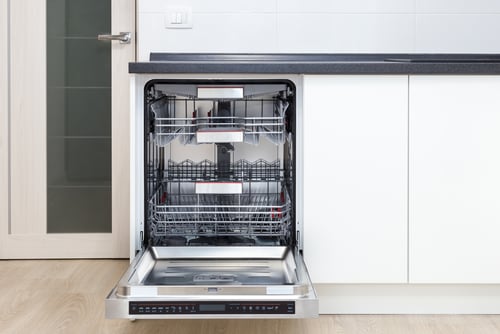 It’s not too difficult to keep your dishwasher running like new – but then again, it’s not so simple, either. While easily performed, some of these dishwasher maintenance tips may surprise you.
It’s not too difficult to keep your dishwasher running like new – but then again, it’s not so simple, either. While easily performed, some of these dishwasher maintenance tips may surprise you.
- Use it or lose it. Believe it or not, one of the best ways to keep your dishwasher in tip-top shape is to run it regularly. This stops food and other buildup from settling in and becoming more difficult to clean later.
- Vinegar is your friend. Pour a couple of cups of vinegar into the bottom of your dishwasher and run on low for an easy, effective clean cycle. Also, vinegar works miracles for a dishwasher’s stainless-steel exterior.
- Rack up. Repair or replace dish racks if the plastic coating begins to wear off, and replace any plastic tine tips – those little “hats” covering the vertical rack tines – if they get lost. Left unfixed, worn-out dishwasher racks can start to corrode, causing small, rusty metal pieces to enter the dishwasher’s pump and lead to expensive repairs later.
- Poke it. Check out the spinning arms that spray the water up – if food or other debris is clogging any of the holes, use a needle or other small item to poke it out and clear the opening. Just be careful if using a wooden toothpick not to let the tip snap off and get stuck inside – or even better, avoid going the toothpick route altogether in favor of a sturdier item, such as a paperclip.
- Clean the seal. Wash around the edge of the dishwasher with a water and vinegar solution, using a soft cloth or brush to clear out any gunk jamming up the area.
Washing Machine Maintenance Tips
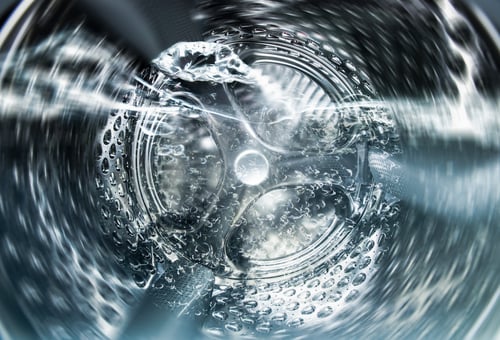 If you want those whites to keep coming out as resplendent as you’ve become accustomed to – and avoid unwanted guests such as mold and mildew – follow these home appliance maintenance tips for a happy washing machine.
If you want those whites to keep coming out as resplendent as you’ve become accustomed to – and avoid unwanted guests such as mold and mildew – follow these home appliance maintenance tips for a happy washing machine.
- Don’t go overboard on the suds. Many washing machines on the market today are energy efficient – definitely a selling point that will save you money and save the environment. Just make sure to use detergent that is appropriate for the machine, as some models will require a less-sudsy HE (high efficiency) detergent.
- Leave the door open. After washing a load of laundry, leaving the door ajar will allow the interior to air properly and prevent mold and mildew.
- Don’t leave wet laundry to sit. Likewise, wet laundry that lingers around inside the washer for hours and hours can bring about those musky pests.
- Wash the washer. Give the door, gasket, drum, and dispensers a good once-over with a solution made of equal parts water and vinegar. Also, every once in a while, run a hot-water load with the washer on empty, using either detergent or vinegar to help get the interior super-clean.
- Don’t overdo the detergent. While it may seem to make sense that more soap will get your clothes cleaner, in actuality the opposite can be true. Extra soap can leave a residue on your laundry – as well as the interior of the machine, causing wear and tear.
Keep Your Dryer Lasting Longer
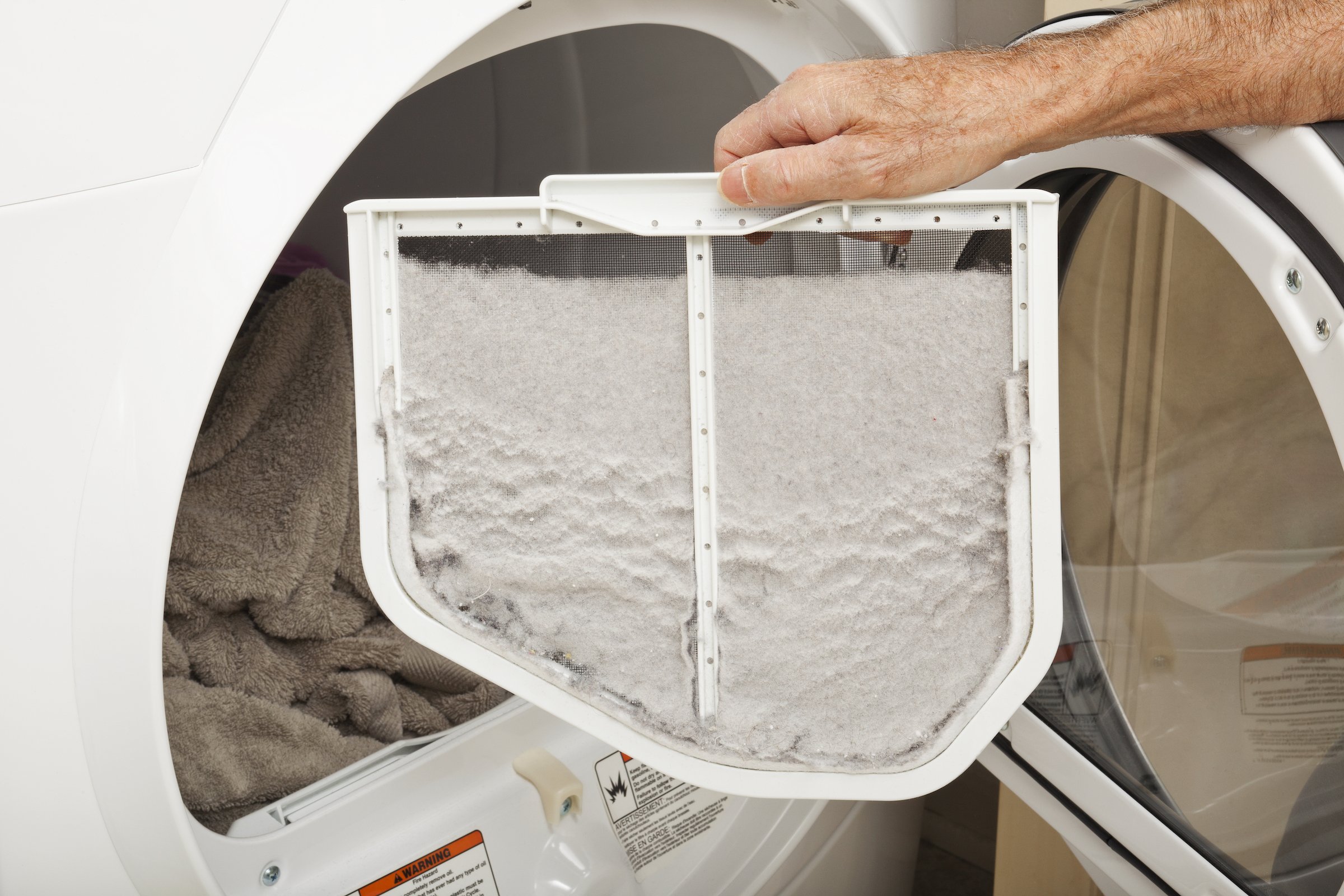 You can extend the life of your dryer simply by following a few easy suggestions – because line-drying your laundry in the sun looks so much better on TV than it actually is in real life.
You can extend the life of your dryer simply by following a few easy suggestions – because line-drying your laundry in the sun looks so much better on TV than it actually is in real life.
- Make sure to vent. All too many dryers are rigged up with that plastic white tubing that, while cheap, is prone to melting or cracking and is not up to fire safety codes. Replace low-grade vent tubing with proper aluminum vent tubes.
- Keep things clear. It almost goes without saying that it’s integral to clean out the lint trap after every cycle (almost), but in addition to that very basic step, it’s also important to keep the vent tubing clear of lint, as well as the area around the vent cap – both inside and out. This will make sure your laundry gets drier, quicker, while also preventing the risk of fire or carbon monoxide leaks.
- Watch the clock. If your dryer is taking longer than usual, it could be telling you that there’s lint clogging up the works somewhere along the way. Give it a thorough inspection from lint trap to vent cap to ensure that the air flow is free and clear.
- Make sure it’s stable. A shaky dryer is liable to have parts fail much sooner, so check occasionally to make sure the dryer is sturdy on its feet by giving it a good shake. Regular use, as well as unevenly distributed loads, can throw a dryer off-kilter. Correct it in just a couple of minutes by adjusting the dryer legs, and benefit from a healthier and longer-lasting dryer.
How to Prolong the Life of Your Refrigerator
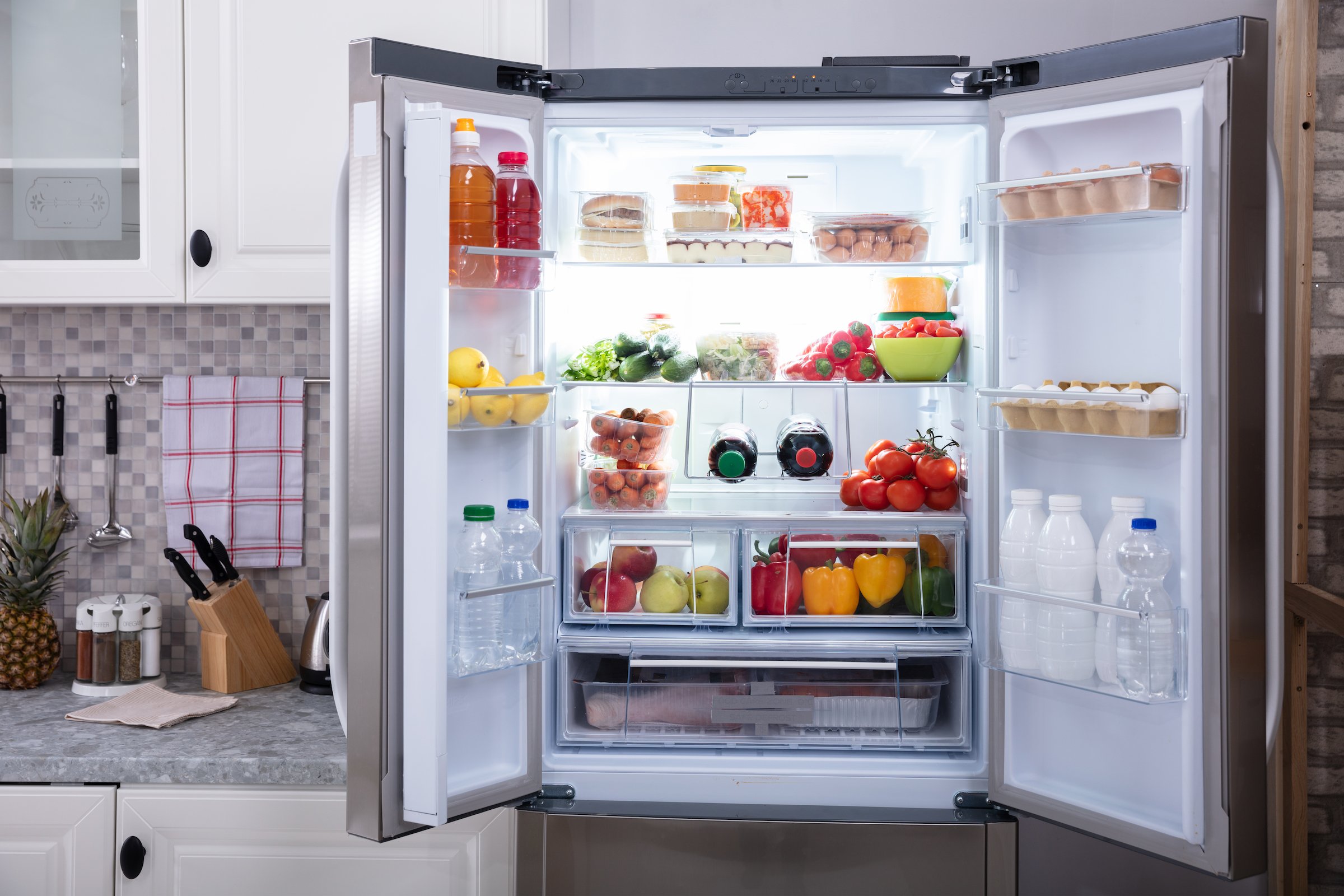 It’s not hard to lighten your refrigerator’s burden, thus prolonging its total lifespan as well as that of its parts. Interestingly, this begins with keeping it full. Sound counter-intuitive? Read on to find out why it works.
It’s not hard to lighten your refrigerator’s burden, thus prolonging its total lifespan as well as that of its parts. Interestingly, this begins with keeping it full. Sound counter-intuitive? Read on to find out why it works.
- Stock up. The more stuff you’ve got in your fridge, the cooler it stays every time you open the door to see if anything’s changed in there (short of an outright miracle, you still need to go shopping if you want any change to actually occur). That’s because all the cold food has something called “thermal mass,” which basically means that it gangs up to tackle any warm air that comes in, thus helping maintain a low temperature.
- Clean the coils. Your refrigerator’s condenser coils – located either on bottom or in back – help dispel excess heat collected from inside the fridge. When dust and grime get caked up on the outside of the coils, your fridge has to work extra hard and is at risk of overheating. Pull your fridge out once a year, unplug it, and give the coils a solid dusting off with a soft cloth.
- Set it, but don’t forget it. Ensuring the fridge is running at the proper temperature – between 37 and 40 degrees for the fridge, and 0 degrees for the freezer – will keep it at its most efficient. If the fridge doesn’t have a built-in thermometer, pop one in there to make sure it’s on the correct setting.
Home Appliance Maintenance Tips for Your Oven
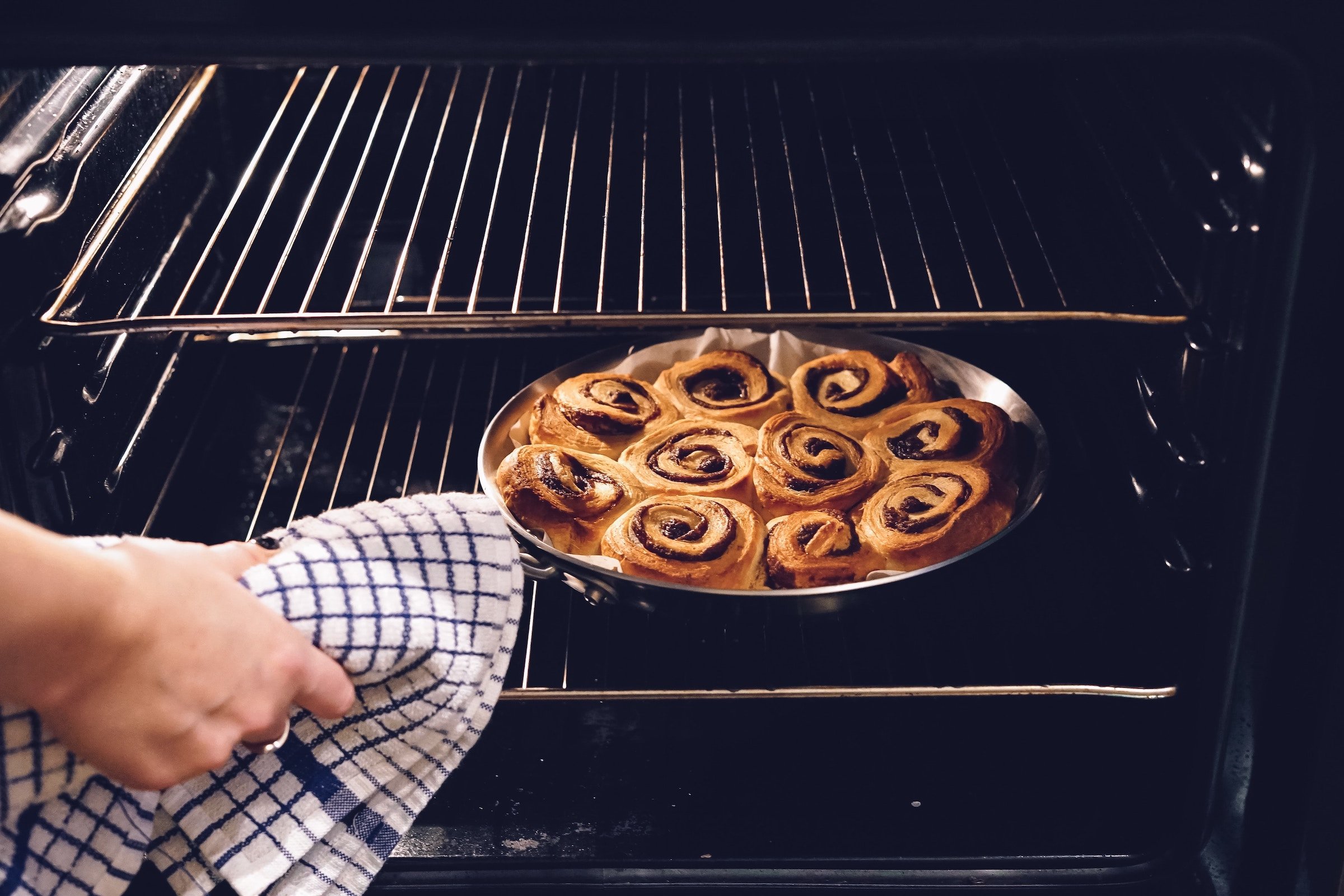 Photo by Toa Heftiba on Unsplash
Photo by Toa Heftiba on Unsplash
Ensure that batch after batch of your favorite dish lives up to your discerning palate by keeping your oven and range in tip-top shape.
- It cleans itself. Running the self-clean cycle is an easy way to get much of the cleaning done without lifting a finger. Just remember to be around for the whole cycle to keep an eye on it, and wait several hours after its conclusion before attempting to wipe down the inside.
- Then, use a little elbow grease. Unplug your oven before cleaning the interior, which is often a water-heavy process. This prevents both the risk of electric shock as well as a short-circuit. Remove the range-top grates and spray them down with oven cleaner, then let them sit to allow the solution to work before washing them in soap and water.
- Pop the knobs off. The oven’s knobs are almost always removable for easy cleaning – but be careful about trying to clean the area on the front of the range that they usually cover. Spray some cleanser on a paper towel or cloth before it wiping down, rather than spraying directly onto the surface, which can easily damage the sensitive electronics.
- Stop spills ahead of time. If you’ve got food in the oven that might boil over or drip, place a baking sheet beneath it to catch the drippings. If some does manage to get down to the floor of the oven, clean immediately to prevent it from holding on for the long-term.
Call in the Professionals to Fix Any Broken Appliances
Nothing is fool-proof. If you’ve got an appliance in need of fixing, Puls has got you covered. We offer a full array of electric appliance repairs nationwide. We fix washers, dryers, refrigerators, ovens, and more, and, with our easy online booking, you can schedule a time slot in just moments – usually for that very same day. And with our 90-day guarantee on parts and labor, you can be sure the job is done right.
Book your time slot with a certified Puls technician and your appliances will be working again in no time.




